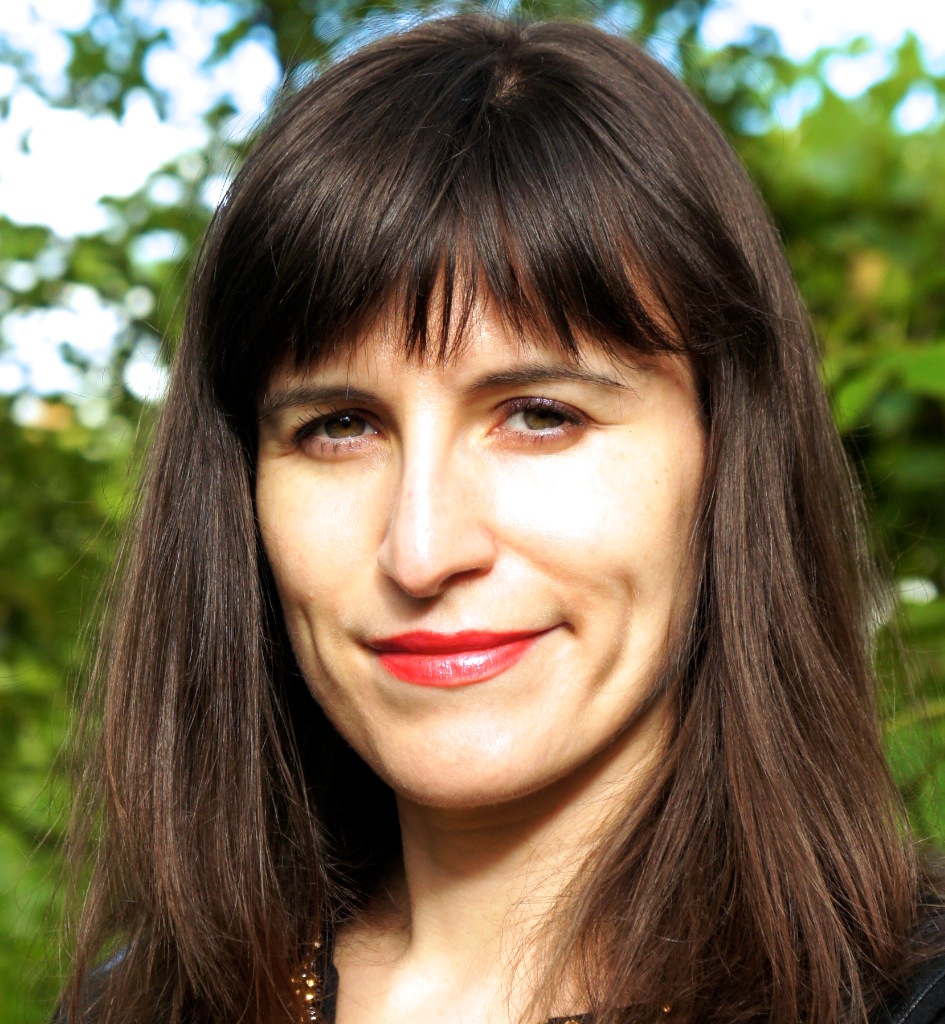Poem of the Week | October 10, 2022

“Before Departure” by Oksana Maksymchuk
This week’s Poem of the Week is “Before Departure” by Oksana Maksymchuk.
Oksana Maksymchuk is a poet, scholar, and literary translator. Her poetry appeared or is forthcoming in AGNI, Cincinnati Review, The Irish Times, The Poetry Review, and other journals. In the Ukrainian, she is the author of poetry collections Xenia and Lovy and a recipient of Antonych and Smoloskyp prizes, two of Ukraine’s top awards for younger poets. With Max Rosochinsky, she co-edited Words for War: New Poems from Ukraine, an anthology of contemporary Ukrainian poetry, and co-translated poetry collections Apricots of Donbas by Lyuba Yakimchuk and The Voices of Babyn Yar by Marianna Kiyanovska. She won first place in the Richmond Lattimore and Joseph Brodsky-Stephen Spender translation competitions and was awarded a National Endowments for the Arts Translation Fellowship. Oksana holds a PhD in philosophy from Northwestern University and was recently a Writer in Residence at the Institute for Advanced Study at the Central European University. Based in Lviv, Ukraine, she is currently staying in Warsaw, Poland.
Before Departure
Noisily, we pack the things
we can carry on our bodies
passports, cash
a ziplock with medicine
love letters we wrote
when we were sixteen
books signed by hands
now raised in surrender
wait…
a small radio to communicate
with the dead
condoms for waterproofing
matches & electronics
… What we hide in the cellar
to come home to:
heirloom needlework, patterns
containing a secret message
children’s watercolors we stashed
in a binder behind the piano
jars of strawberry jam
made by Grandma
when she was still alive
Author’s Note
Our decision to leave Ukraine was sudden — even we were surprised by it. In the weeks leading up to the invasion, we stocked up on food and essential supplies, like matches, candles, and a battery-powered radio, should there be no electricity nor internet and we’d be cut off from the news. We started clearing out our cellar, where neighbors had stored their broken furniture, and filling it up with crates of potatoes, small glass jars of jam and large plastic jugs of water, cans of condensed milk and tushonka, a stewed meat we’d used on camping trips back in the “hungry nineties.” At the pharmacy, we acquired antibiotics, tourniquets for torn-off limbs, blood-clotting agents for open wounds, and bandages of various kinds. We stocked up on brandy, wine, and chocolate. We packed our emergency bags, in case the cellar would no longer be safe and we’d have to run. Governmental instructions said we must be ready to be on the move for many hours, in the rain, in the dark. We checked our shoes and coats, waterproofed our gloves and hats. It was February and freezing. We considered the cat. How would she do in a carrier, and who’d carry it?
That day, I was editing an essay in a co-working place at the end of the street where we live. On the lip of the former Jewish ghetto, the airy plant-filled loft overlooks the prison courtyard, with a special plaque commemorating the atrocities committed here against civilians by the occupying powers. First the Soviets invaded the city in 1939, then the Nazis took over in 1941, then the Soviets liberated it in 1943. Every change was accompanied by mass executions, both by the retreating army, and by the army that entered. The civilian casualties were measured in hundreds of thousands.
Our Austrian-era building, completed in 1914, had been a silent witness to the systematic extermination of the city’s Jewish inhabitants. On Google, I looked up pictures of occupied Lviv – tanks positioned on the familiar streets, corpses on the sidewalks, desperate women pursued by leering gangs of soldiers and collaborators. I felt this could happen again: tanks, bombings, the portentous knocking on the door in the middle of the night, casual executions.
The poem describes not so much the time leading up to the decision. I still cannot speak of that, as the experience pushed me outside of language, turned me into a heaving, grasping, nauseous organism. Rather, it captures the moments of readying ourselves for the departure. Without naming the evil that we’re fleeing, without describing our own feelings of guilt and shame at leaving behind those who’d chosen to stay, it nevertheless concludes with the names of the things worth preserving and coming back to – the heirloom embroidery, the jars of jam – evoking the memories of the people we love, tying us to times and places beyond the constricting, terrifying present.
SEE THE ISSUE
SUGGESTED CONTENT

Poem of the Week
Apr 15 2024
“Love Poem for Lois” by Regan Green
“Love Poem for Lois” by Regan Green is our Poem of the Week. Regan Green grew up in Columbia, Tennessee, and now lives in Baltimore. She is a junior lecturer… read more

Poem of the Week
Apr 08 2024
“Gray” by Melissa Ginsburg
“Gray” by Melissa Ginsburg is our Poem of the Week. Melissa Ginsburg is the author of the poetry collections Doll Apollo (winner of the Mississippi Institute of Arts and Letters… read more

Poem of the Week
Apr 01 2024
“Pharmacy Museum Tour Guide, New Orleans” by Andy Young
“Pharmacy Museum Tour Guide, New Orleans” by Andy Young is our Poem of the Week. Andy Young’s second full-length collection, Museum of the Soon to Depart, is forthcoming from Carnegie… read more

